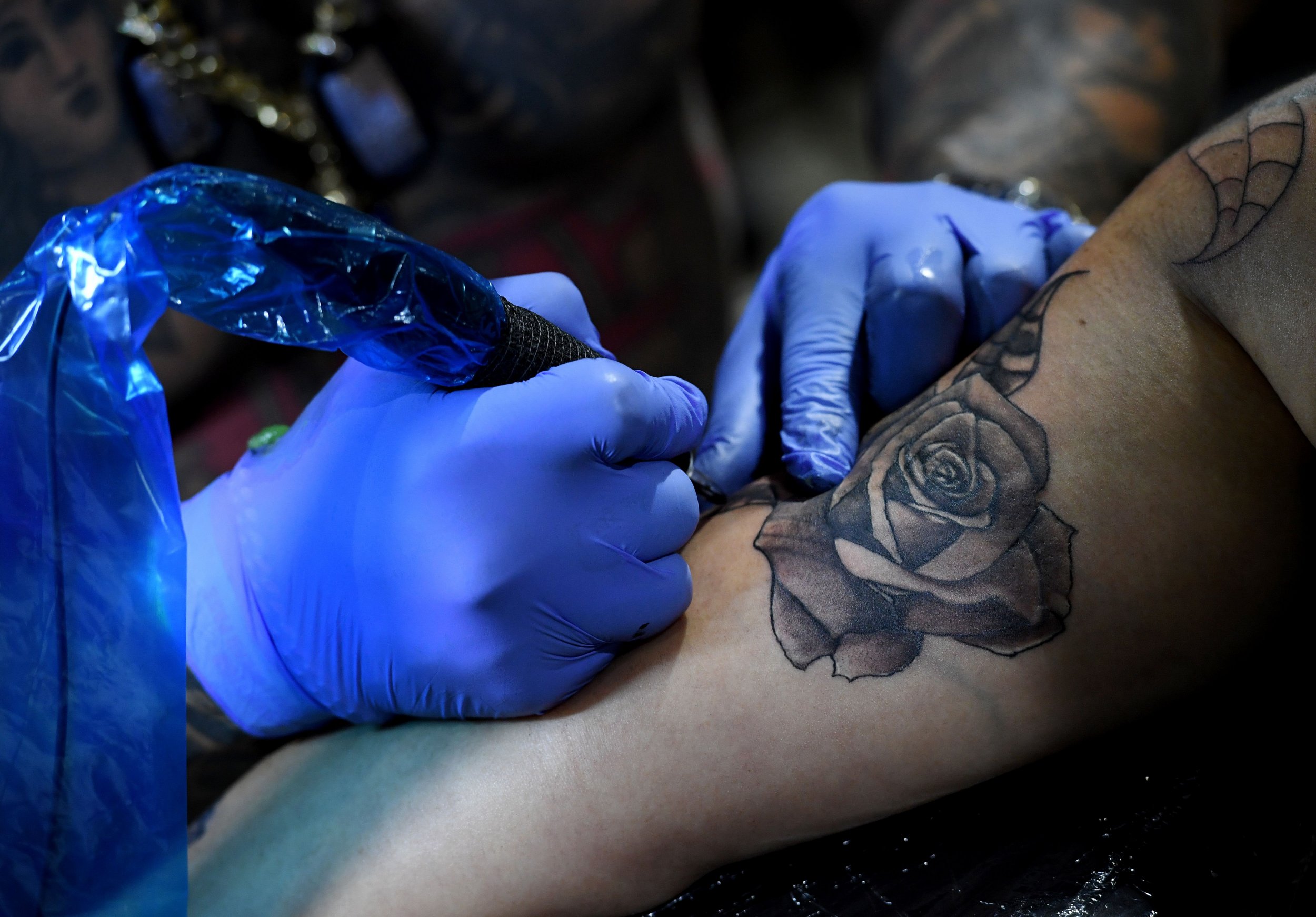
A 30-year-old Australian woman was convinced she was suffering from lymphoma, a type of cancer that begins in the immune system. But the suspected cancerous tumor turned out to be 15-year-old tattoo ink, raising concerns about the long-lasting effects of body art.
Published in the Annals of Internal Medicine, the paper reports that the patient visited a medical clinic after noticing mysterious lumps on her armpits. She reported no other symptoms, like fever, night sweats or weight loss. According to CNN, scans showed swollen lymph nodes in the woman's chest, near her lungs, despite her being a nonsmoker.
Related: Model goes blind after tattooing eyeball, warns others of dangers
Swollen lymph nodes are not always a sign of cancer, but they do signal a problem in the body, like an infection. However, infections typically come with other symptoms, such as a fever, which is why doctors thought the patient had cancer.
"Ninety-nine times out of 100, [this] will be lymphoma," Christian Bryant, one of the patient's doctors, told CNN.
In this case, the woman was in the minority. Doctors found tattoo ink in the lymph node removed from her armpit, which they believe caused the inflammation. She had one 15-year-old tattoo on her back and another one on her left shoulder that was only two years old.
Though extremely rare, this case isn't as wild as it appears, says Marleen Meyers, a medical oncologist and director of the Perlmutter Cancer Center Survivorship Program at NYU Langone Health. In fact, the patient's body was reacting exactly as it should.
Meyers explains that lymph nodes have the purpose of filtering and draining, which occurs whenever the body experiences trauma or infections, in this case the trauma resulting from the tattoo. She says tattoo ink contains nanoparticles, which are drained the same way that an infection in your skin might be drained.
"Your lymph nodes don't know the difference between an infection and the particles," she says. The doctor says black ink is more likely to be filtered by the lymph nodes than lighter colors.
Fifteen years after the tattoo was done may seem like a long lag time, but Meyers says there is no timeline for when these events occur.
As for whether tattoos are unsafe, she says that some chemicals found in inks have been shown to cause cancer in animals, but there is no link in humans. Still, she doesn't think you can rule out the possibility entirely.
"Whenever we see something in animals, it always begs the question, 'Should we be concerned about seeing this in humans?'"
Meyers admits she's cautious when it comes to getting inked. "I find the whole idea about tattoos alarming from the get-go of going to the tattoo parlor," she says. "You're letting someone pierce your skin with a needle that they're telling you is clean, but you don't know. Then, they're putting ink into your skin from companies and places. Again, you have no idea where they're getting it from."
According to the Food and Drug Administration, some ink contains pigments also found in printer toner and car paint. The FDA doesn't approve or regulate tattoo ink.
"Yeah, the whole thing is really terrifying," says Meyers.
Uncommon Knowledge
Newsweek is committed to challenging conventional wisdom and finding connections in the search for common ground.
Newsweek is committed to challenging conventional wisdom and finding connections in the search for common ground.
About the writer
Melissa is a science writer covering health for Newsweek and has contributed to Inc., Dr. Oz The Good Life, Men's Fitness, Marie Claire and others. She earned ... Read more
To read how Newsweek uses AI as a newsroom tool, Click here.








